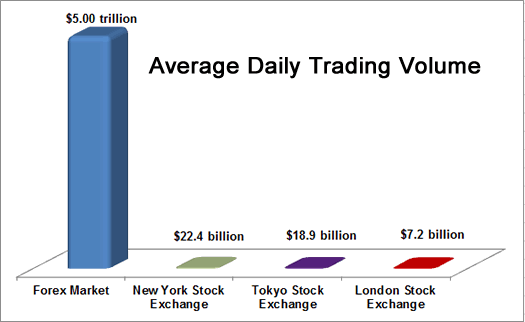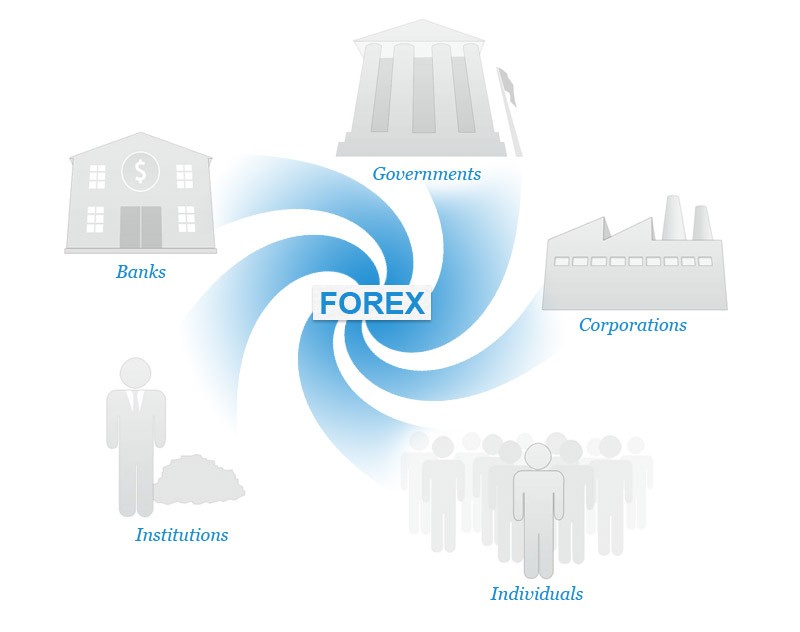Players on the Forex Market
Post on: 15 Май, 2015 No Comment

Diverse a commodity market, where all participants have access to the same price levels, the forex market is separated into levels of access. At the peak is the inter bank industry, which is made up of the most prominent investment funds banking firms. Inside the interbank marketplace, gaps, which are the deviation between the bidding and ask cost, are razor sharp and normally unavailable, and not known to participants outside the inner circle. As you go down the degrees of access, the difference between the bidding and ask costs extends. This is due to mass. If a swing trader can guarantee immense amounts of dealings for huge amounts, they can require a more minor difference between the bidding and ask price, which is named to as a better spreading. The degrees of entry that make up the foreign currency exchange market are regulated by the size of the line (the total of revenue with which they can be trading). The toptier inter bank industry accounts for 53% of all transactions. When that there are usually more minor investment banks, followed by heavy multinational corporations (which want to hedge risk and pay employees in diverse countries), big hedge funds, and potentially a few of the retail forex market makers. According to Galati and Melvin, Pension funds, insurance policy companies, mutual funds, and other institutional investors have wagered an increasingly significant role in financial markets in general, and in FX markets in particular, since the early 2000s. (2004) Additionally, he notes, Hedge funds have risen markedly over the 2001/2004 period in terms of both figure and total sizing Central banking institutions also participate in the foreign currency exchange industry to coordinate currencies to their economical needs.
Central Banks
National primal banks play an please note role in the foreign exchange marketplaces. They seek to check the revenue supply, inflation, and/or interest rates and often have prescribed or unofficial target values for their currencies. They can use their oftentimes substantial foreign exchange reserves to stabilize the marketplace. Milton Friedman argued that the most practiced stabilisation scheme would be for primal banks to buy when the rate of exchange is too low, and to trade when the rate is too high — that is, to trade for a benefit according to their more accurate data. Nevertheless, the strength of primal banking institute stabilising hypothesis is in question because primal banking firms don’t go bankrupt if they make huge losses, like more traders would, and there is no convincing grounds to believe that they do make a profits dealing.
The simple expectation or hearsay of key banking institute intercession will be enough to stabilize a currency, but aggressive intercession will be used a number of times each year in areas with a dirty float currency authorities. key banking institues do not universally accomplish their objectives, however. The merged resources of the industry can easily sweep over whatever central banking concern. some scenarios of this nature were seen in the 1992/93 ERM collapse, and in more recent times in Southeast Asia.
Banking Institutions
The inter bank market caters for each the majority of commercial turnover and large numbers of speculative dealing each day. A prominent bank may swap billions of dollars every day. some of this swapping is undertaken on behalf of customers, but great deal is conducted by proprietary desks, swapping for the banking firms own account.

investing management firms (who occasionally manage vast accounts on behalf of clients such as pension funds and endowments) utilise the foreign exchange industry to facilitate dealings in foreign securities. For instance, an investment funds manager with an worldwide equity portfolio will require to choose and deal foreign currencies in the area market in order to compensate for purchases of alien stocks. Because the forex trading transactions are secondary to the de facto investing decision, they are not seen as speculative or calculated at profit maximization.
some investing management houses also have more speculative specialist currency overlay operations, which manage clients currency exposures with the aim of generating profits as well as limiting risk. Whilst the figure of this type of specialist firms is quite microscopic, many have a big value of assets under management (AUM), and hence can generate immense trades.
Commercial Corporations
An important side of this marketplace comes from the financial activities of corporations seeking extraneous exchange to pay for goods or services. Commercial corporations much business deal fairly pocket size amounts likened to those of banks or speculators, and their trades frequently have little short term impact on market merits. However, business deal flows can be an please note ingredient in the semipermanent direction of a currencys exchange rate. a few transnational corporations can have an unpredictable impact when very enormous positions could be reported due to exposures that want to be not widely known by more marketplace players.














